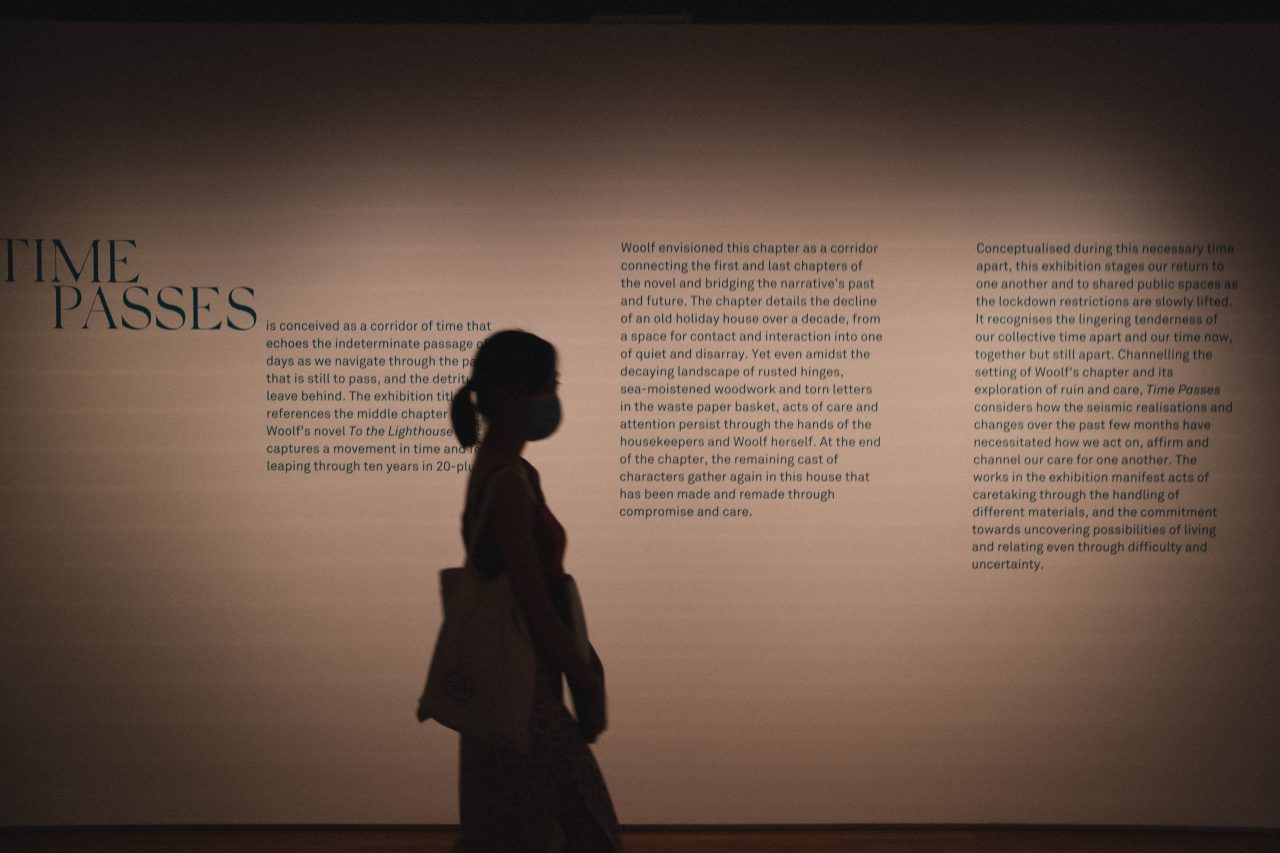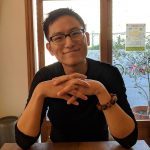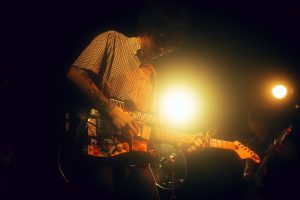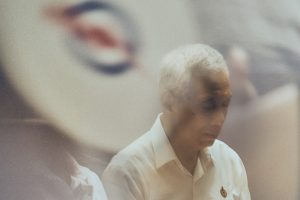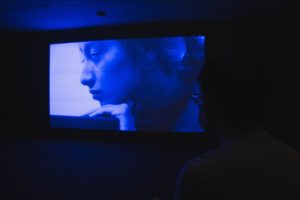I’ve always been fascinated by art galleries. Specifically, by the people who visit them. While art can be a deeply personal experience, is there something universal about it as well? Is the colour blue that I see the same as your blue? #Showerthoughts.
And as we near the end of this tumultuous year that is 2020, can art teach us something new about ourselves?
To find out, I spent a whole day interviewing strangers from all walks of life at the Time Passes exhibition. The Singapore Art Museum unveiled the exhibition as a way to help Singaporeans make sense of these trying times. Inspired by the middle chapter of Virginia Woolf’s novel To the Lighthouse, it encourages us to think about how we can take better care of ourselves and others.
The following interviews are divided into chapters, and have been lightly edited for clarity.
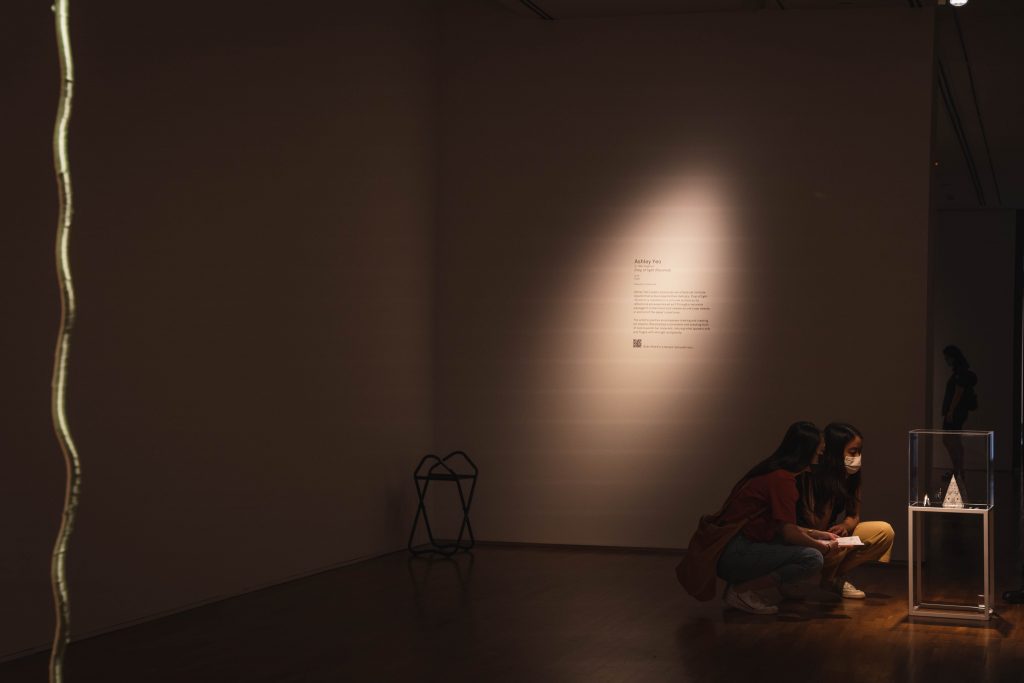
Chapter 1: The Sound and the Fury
My name is Paddy. I’m 48, and I’m a gallery sitter at National Gallery Singapore.
I was born in the year of the Rat, so this year happens to be my ben ming nian (”本命年“, i.e. the year that corresponds with one’s Chinese zodiac sign). According to Chinese customs, your ben ming nian is not auspicious. You have to go to the gods to burn some incense to try and turn things around.
Not to get superstitious, but this year has, in fact, been a very bad year for me.
The circuit breaker brought out the worst in me. I got to a very depressive state, as it was the first time in years that I had to be with my parents for months in a confined space. This may be a terrible thing to confess, but the truth is, I don’t like my parents very much. I don’t hate them. There’s just a huge generation gap between us, which leads to many misunderstandings.
Being with my parents, day in and day out, took a toll on my mental health. It was dreadful! Time dragged on and on. I felt isolated, and all the bad thoughts came out under those conditions. I felt lonely, depressed, and I was desperate to find a way out.
For me, time stood still in 2020. I wasn’t achieving anything. I wasn’t going anywhere. I wasn’t in my normal routine of a 9-to-5 job. On the positive side, I think the pandemic made me dig deeper. It made me understand myself more, not only the shallower aspects of my likes and dislikes, but also the darker side of my psyche.
Speaking of digging deep, the piece that resonated with me the most was #sgbyecentennial by Fazleen Karlan. It deals with the idea of archaeological excavation, which we normally associate with things from the ancient past. But the items that are excavated in this artwork are things from our time, which invites us to philosophise about the meaning of past, present and future.
It reminds me of a quote by my favourite novelist William Faulkner, who said, “the past is never dead. It’s not even past.”
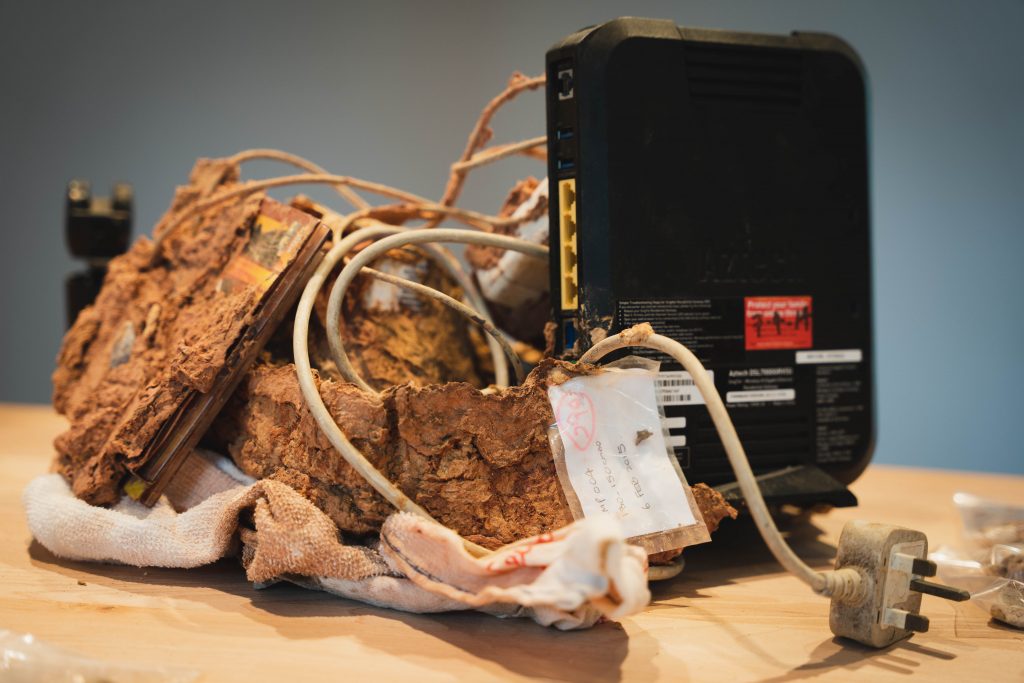
Chapter 2: To the Playhouse
My name is Fidelie. I’m 45. I’m a housewife and temporary worker.
Drop of light (Pyramid) by Ashley Yeo is my favourite piece in this exhibit. It was made by hand using one sheet of paper. It is magnificent! I never imagined that a human being could do this.
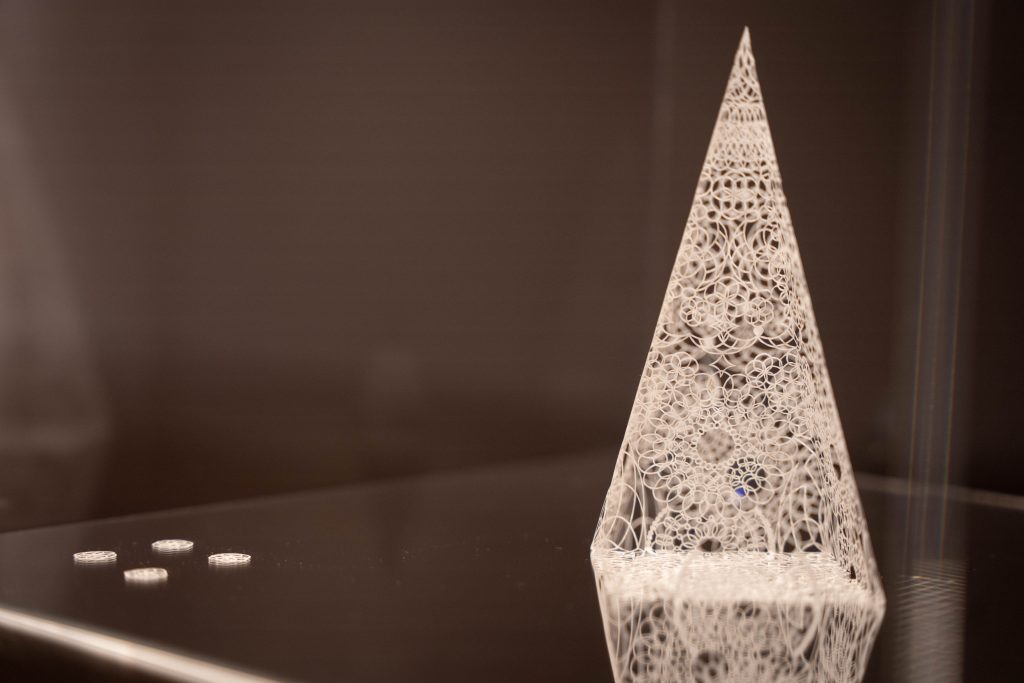
Ashley’s work is so delicate, intricate and full of symmetry. For a person who lives in the 21st century, it’s an amazing accomplishment, because these days, we rely so much on gadgets and machines.
Similar to this piece, this pandemic has made us rethink what is possible. People are starting to use only what they need. Before, if I needed party clothes and shoes for my children, I could go out and buy it, even if they might just wear it for one day. Now I have no use for such things. Even the cars we drive, we have to cut down all the trees to build parking lots. It doesn’t make sense.
In my personal life this year, I feel quite sad because I can’t travel. I can’t visit my parents in Indonesia. I think I must face it. This is part of my life. And everyone is also facing it. We must survive. We must learn something new.
The circuit breaker was tough. I’m a very outgoing person. I like to go out. I don’t like meeting people online because it’s a different feeling. People say I can Zoom or FaceTime, but it’s different! I couldn’t go out to drink coffee with my friends or with my husband. Everything was at home. It was tough.
I try to be normal because I have kids. I have one in secondary three and one in primary three. If I’m not normal, then my kids will be worse. So I try to be normal. I just try to keep them busy at home. For example, cooking, exercise and playing games I played when I grew up. Like marbles. Not online games. Because enough! Everything is online. Study online, meetings online. It never ends.
I also picked up gardening. I decided to plant some rosemary and lettuce on my windowsill. When I pick up the leaves, I feel so happy. When I have something to take care of, I feel less stressed.
Chapter 3: In Search of Lost Time
My name is Celt. I’m 43. I work as an auxiliary police officer at the Johor-Singapore Causeway.
Just now, I saw a video installation about a girl and some men. The video is very weird and I feel that the artist wants to show us the feeling of living in this world. How people connect with each other. Maybe some of us still cannot find the proper way to show our feelings. This is quite, how to say (pauses) … I’m still trying to figure out how I feel.
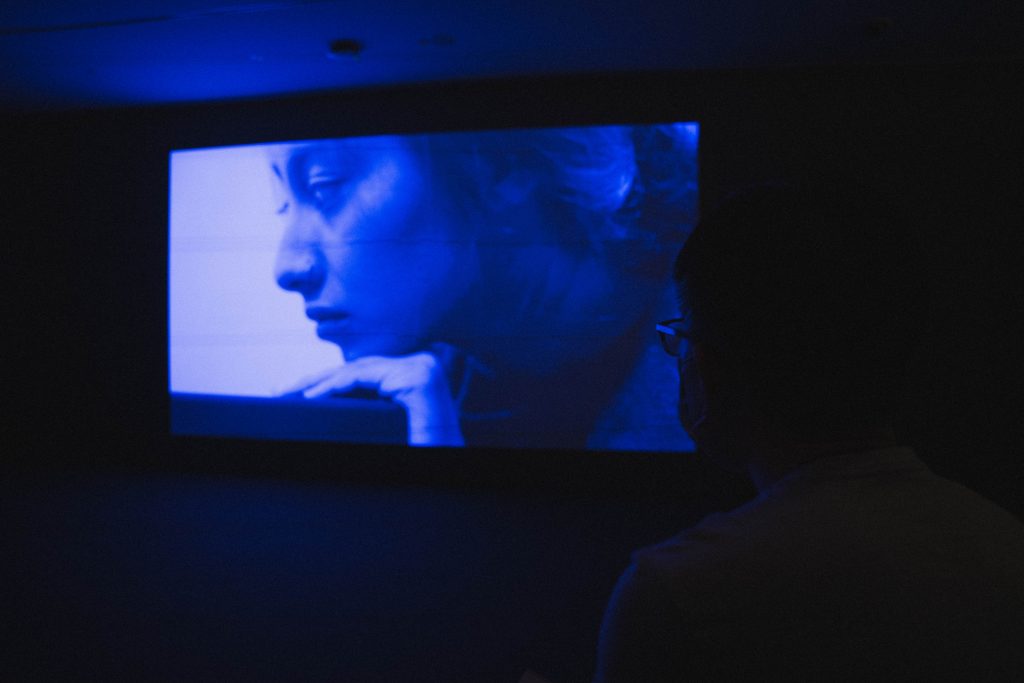
My family is staying in Taiwan. I’m staying here. I’m alone here and I cannot fly to see my family. So it feels like my freedom is not freedom anymore. I’m restricted in this country. Even if I can focus on my job, I still think I lost something. My wife and I, we have a daughter, who’s studying in Taiwan. She’s in kindergarten.
This pandemic for me is … I’ve never been in this kind of situation before. Everything has been postponed and I think my life cannot go to the next step. I’m still in this situation. For how long? I don’t know. I’m getting older, day by day. But I’m still here.
Chapters 4: Love in the Time of a Pandemic
My name is Lina (and I’m Trevor). We’re 21- and 23-year-old NTU students, majoring in physics.
Lina: My favourite piece in this exhibit is the one called Render Tender by Divaagar. It’s the space with the enclosure, blue lights and plants. The installation feels calming and healing. Museums and galleries, for me, are places of healing, and the artist was able to transform the space in a way that conveys the feeling I get from visiting these places.
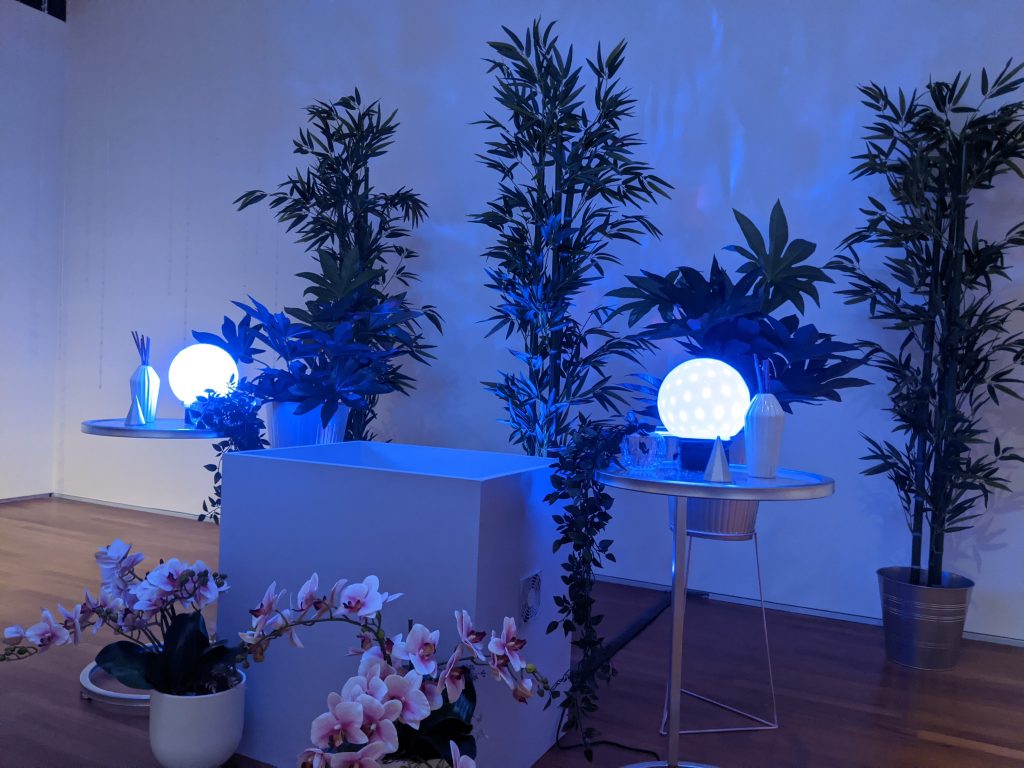
Trevor: I really like the New Radio series by Mengju Lin, where she pieced together words from recycled materials and packaging. The artist presents a new way of looking at the language of everyday consumer objects. It helps to put things in perspective. You kind of see the words in a different way.
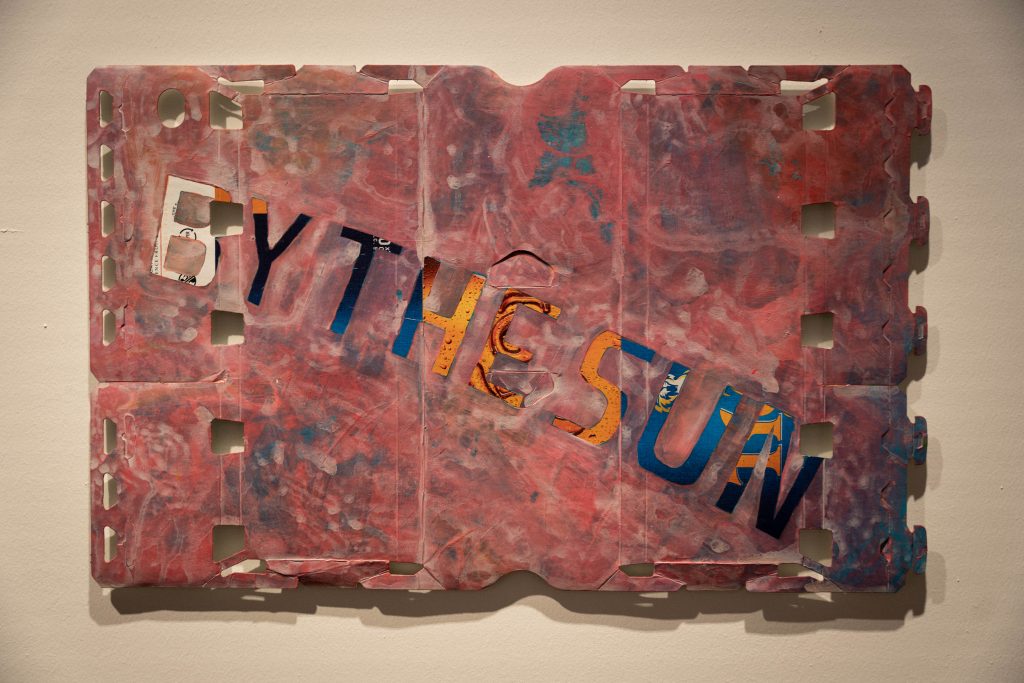
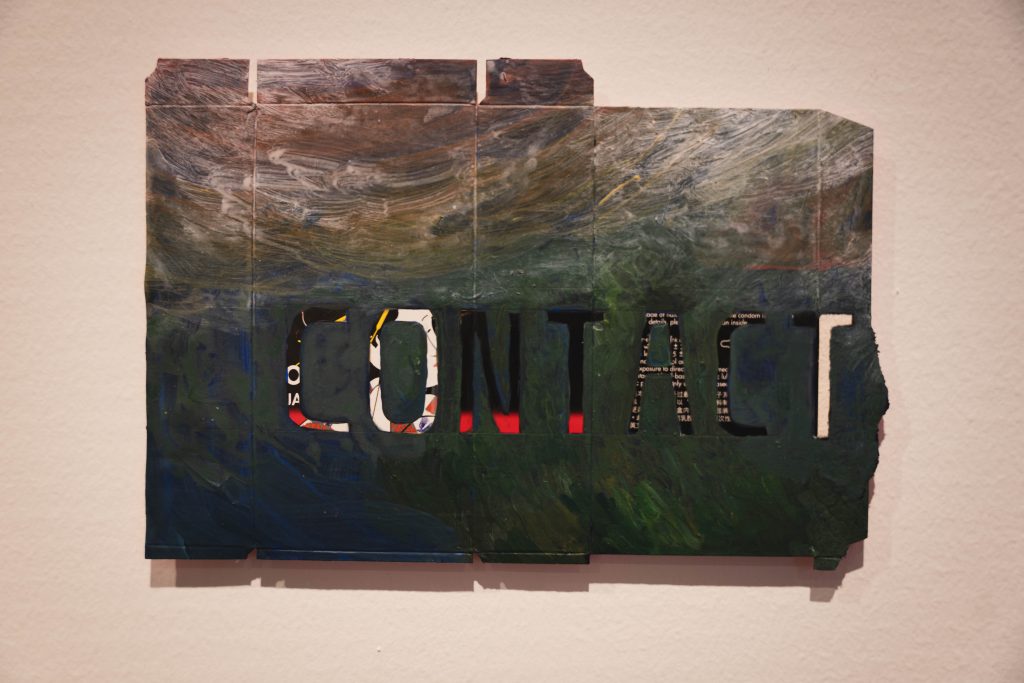
Lina: I guess the pandemic was unexpected. I’m sure everyone had their own plans for the year and it was obviously disrupted by the virus. This pandemic has forced us to figure out ways to change the way we live. There’s a lot more emphasis on personal connections. You have to find different ways to connect with people. For my old group of friends from JC, we found new ways to spend time together from the comforts of our own home, like playing Dungeons and Dragons.
Trevor: Adding to what Lina said, I think it’s a time of opportunity and self-awareness. For me, it’s about taking a step back to reflect on the way we lived. Has it been too fast-paced? Has the ‘normal’ way of life been too disruptive to our own personal lives to the point where we lose touch with ourselves? So I’d say 2020 has been a year to figure out who we are.
Lina: On the subject of self-care, the circuit breaker gave me time to reconnect with the things I used to enjoy when I was younger, like art and drawing. I also started learning things outside of my degree, because I feel like when you’re in school, you’re sort of limited by the modules you can take. But this year I had the time to sit down and learn for the sake of learning. Learn for fun! For example, I took a course on ancient literature, which covered classics like the Epic of Gilgamesh and 1,001 Arabian Nights.
Trevor: This year has helped bring me and family closer together. Connections are definitely stronger. Internally, it’s very positive for the family unit, self-love and self-feeling, but it can create a sort of dissonance between you and the outside world.
Lina and I didn’t really know each other before the circuit breaker. When Phase 2 came around, we met up through this matchmaking service called The Aphrodite Project. We started dating shortly after.
Lina: And now we’re here.
Epilogue: Through the Looking Glass
After spending the entire day talking to strangers about art and their personal lives, I came away feeling more hopeful than I’d expected. Through the good and bad times, Singaporeans have been using this year to reflect and think deeply about their lives. They’re starting to figure out what brings them joy and meaning.
But will these lessons stay with us after the pandemic? What will next year bring?
As Virginia Woolf would say,
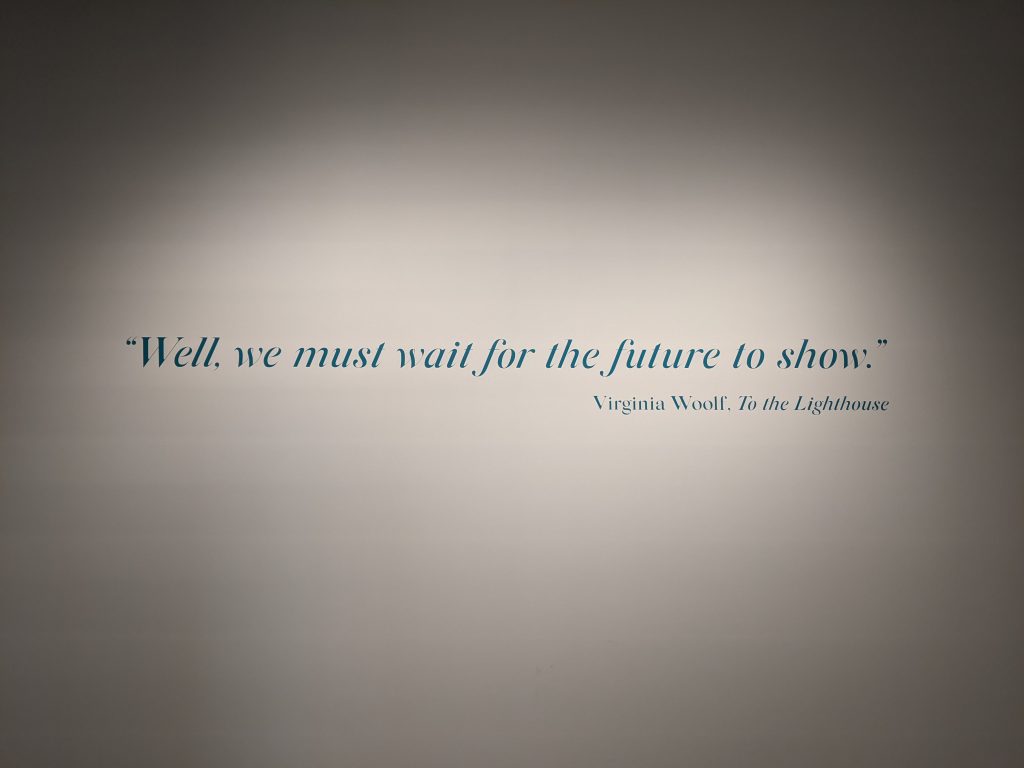
This story was sponsored by Singapore Art Museum (SAM).
Organised by SAM, 𝙏𝙞𝙢𝙚 𝙋𝙖𝙨𝙨𝙚𝙨 is an art exhibition that invites visitors to reflect on how our social bonds and acts of care have persisted through the pandemic. It is showing at National Gallery Singapore until 21 February 2021. Admission is free for Singaporeans and PRs. For more information, please visit: https://www.singaporeartmuseum.sg/art-events/exhibitions/time-passes.

